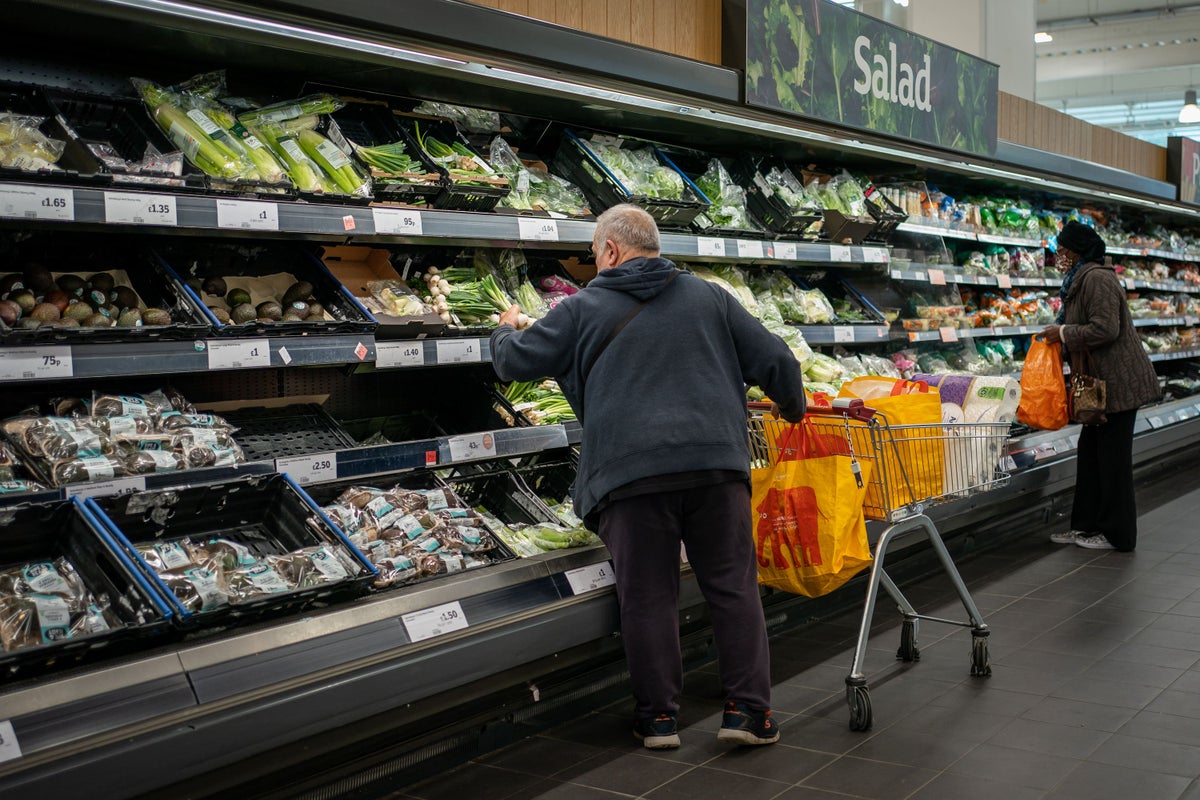
Price rises in British shops have slowed to their lowest rate since October last year, but keep going up significantly, new data has shown.
The British Retail Consortium (BRC) reported on Tuesday that prices rose 6.9 per cent in the year to August, down from 8.4 per cent in July.
It does not mean that things are getting cheaper, just that they increased in price more slowly between September 2022 and August 2023 than they did between August 2022 and July 2023.
The BRC showed that the main reason that retail inflation dropped was because fresh food prices rose less rapidly.
Fresh food inflation slowed to 11.6 per cent in August, down from 14.3 per cent in July.
Inflation for ambient foods – items that can be stored at room temperature – fell from 12.3 per cent in July to 11.3 per cent in August.
Overall food inflation slowed from 13.4 per cent to 11.5 per cent. Inflation for non-food items was unchanged at 4.7 per cent, the BRC said.
The consortium’s chief executive Helen Dickinson said: “Better news for consumers as shop price inflation in August eased to its lowest level since October 2022.
“This was driven by falling food inflation, particularly for products such as meat, potatoes and some cooking oils.
“These figures would have been lower still had the government not increased alcohol duties earlier this month.”
She said that key components of toiletries and cosmetics had become cheaper, which helped ease price rises in these categories.
But inflation for clothing and footwear increased as the summer sales came to a close.
“While inflation is on course to continue to fall thanks to retailers’ efforts, there are supply chain risks for retailers to navigate.
“Russia’s withdrawal from the Black Sea Grain Initiative and its targeting of Ukrainian grain facilities, as well as poor harvests across Europe and beyond, could serve as potential roadblocks to lower inflation.
“A potential £400 million hike to business rates bills from next April would certainly jeopardise efforts to tackle inflation unless the Chancellor intervenes.”







